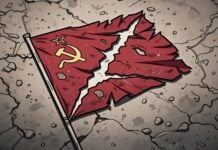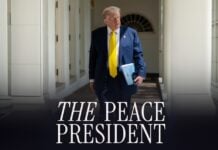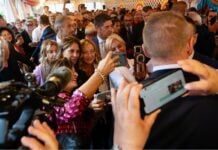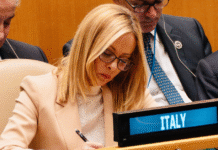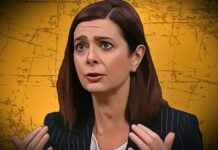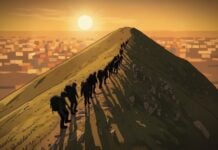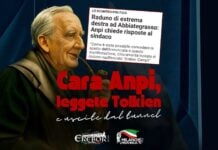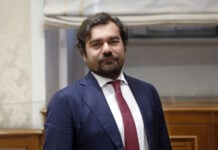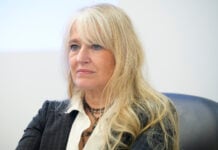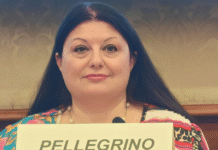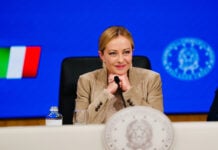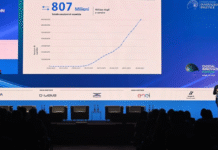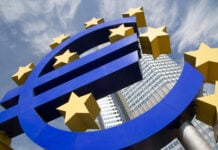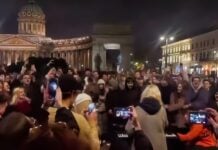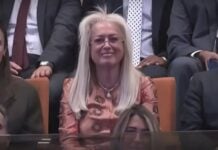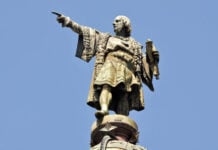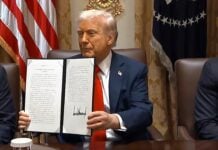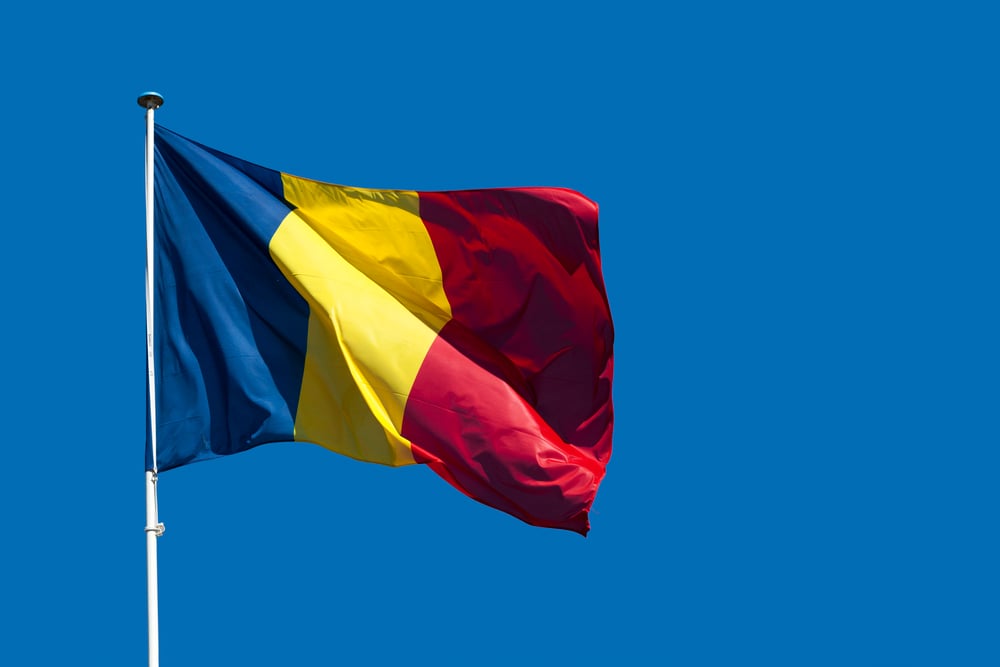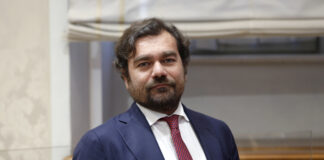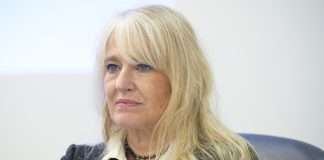The presidential elections on 4 May represent much more than a political transition for Romania. They are a watershed. A moment of truth. After years of external pressure, internal manipulation and a legalised coup d’état that erased millions of votes with the stroke of a pen, the Romanian people finally have a chance to rise up and take back what is theirs: sovereignty.
Last November, the first round of the presidential elections saw a figure uncomfortable with the system emerge strongly: Călin Georgescu. A candidate outside the power games, free, radical, popular. With 23% support in the first round, he was suddenly turned into a ‘danger to national security’ on the basis of alleged ‘Russian interference’ that has never been proven. A specious accusation, useful only to neutralise a political opponent unwelcome in Brussels and its internal terminals. On 12 March, the Constitutional Court made Georgescu’s exclusion official. A verdict written elsewhere.
But they did not reckon with the anger of the people. With the dignity of a people who have already suffered enough. And with the determination of those who do not accept that democracy is a rigged game. Picking up the baton left by Georgescu today is George Simion, leader of the Alliance for the Union of Romanians (AUR), the face of a new patriotic resistance that wants to break the power games and give back the voice to the people.
Simion is not a ‘drawing room’ politician. He is a man who comes from the street, from real battles. Born in 1986, founder of the ‘Action 2012’ movement for union with Moldova, he has made national identity his flag. At the head of the AUR, a party that entered Parliament in 2020 with 9% and grew to 18% in 2024, he has become the point of reference for those who no longer recognise themselves in the systemic parties. Of those who want family, work, security, homeland. Of those who are tired of being culturally and economically colonised by a European Union that preaches democracy and freedom, but tramples them underfoot every time citizens choose something different from what Brussels likes.
Simion’s profile is clear. He unambiguously condemned Russian aggression against Ukraine, called Putin a war criminal, but also refused to turn Romania into a NATO dependency or a lapdog on the leash of American interests. He wants a sovereign, strong Romania, master of its choices. And above all, he wants the choices to go back to the people.
Meanwhile, the opposing camp is in chaos. Marcel Ciolacu’s Psd, which governs without passion or vision, has become the symbol of immobility. Elena Lasconi of the USR represents the urban elite that looks down on deep Romania. Nicușor Dan, mayor of Bucharest, tries to establish himself as a moderate figure, but he has neither the stature nor the charisma to resist the patriotic wave. Crin Antonescu, with his NLP, is only the faded shadow of a past that does not return. A divided, worn-out front, disconnected from reality.
As the parties crumble, the system breaks down. And fear grows. It grows in the corridors of European chancelleries, in media parlours, in complacent editorial offices, in institutions that should guarantee democracy and instead sabotage it.
It is no coincidence that the Romania case has also been discussed across the Atlantic. At the Munich Security Conference, US Vice-President JD Vance spoke sacrosanct words, which Giorgia Meloni, in an interview with the Financial Times, confirmed she shared. Because the Romanian battle is not isolated.
It is a reflection of a wider crisis. Of a European Union that has lost the sense of its founding values.
In that speech, Vance bluntly denounced what had happened: ‘It struck me that a former European Commissioner went on television recently and rejoiced that the Romanian government had just cancelled an entire election. He warned that if things do not go as planned, the same thing could happen in Germany. Such nonchalant statements are shocking. […] We have to do more than talk about democratic values. We have to live them’.
Then he sank the blow: ‘Democracy is based on the sacred principle that the voice of the people counts. There is no room for firewalls. Either you uphold the principle or you don’t. […] Believing in democracy means understanding that each of our citizens has wisdom and a voice. And if we refuse to listen to that voice, even our most successful struggles will achieve little’.
They are words that bother the mainstream so much because they expose the hypocrisy of those who preach democracy but suspend it when they do not like the result. And they are words that today sound like encouragement to George Simion and millions of Romanians preparing to challenge the system.
4 May and the runoff on the 18th are not just electoral milestones. They are a historical crossroads. On the one hand, a Romania that accepts being commissioned by Brussels and governed by judges without democratic legitimacy. On the other, a nation that chooses to stand up, to believe in itself again, to say no more to submission.
And as JD Vance recalled, quoting Pope John Paul II: ‘Do not be afraid.
Do not be afraid to challenge those who want you to be dumb. Do not be afraid to speak your mind. Do not be afraid to vote against those who want you enslaved. Because freedom is not asked for. It is taken.
It is no coincidence that ‘Without Fear’ was also the first slogan of Fratelli d’Italia: a clear, strong message that today, more than ever, speaks to the whole of Europe.
If George Simion wins, it will be a powerful message to the whole continent: the voice of the people will not die out. If he loses, it will not be the end. It will be the beginning of a new resistance. Of a new springtime of the peoples. And this time, no one will be able to turn a blind eye.
It is for these reasons that, with La Voce del Patriota, we have decided to launch a special column dedicated to Romania 2025, to recount, without filters and without censorship, this crucial battle for democracy. We will do so with articles, reportages, videos and on-the-ground links, because in Romania, on 4 May, we are not just voting for a president: we are voting for the future of Europe.
And when freedom calls, The Voice of the Patriot answers.


